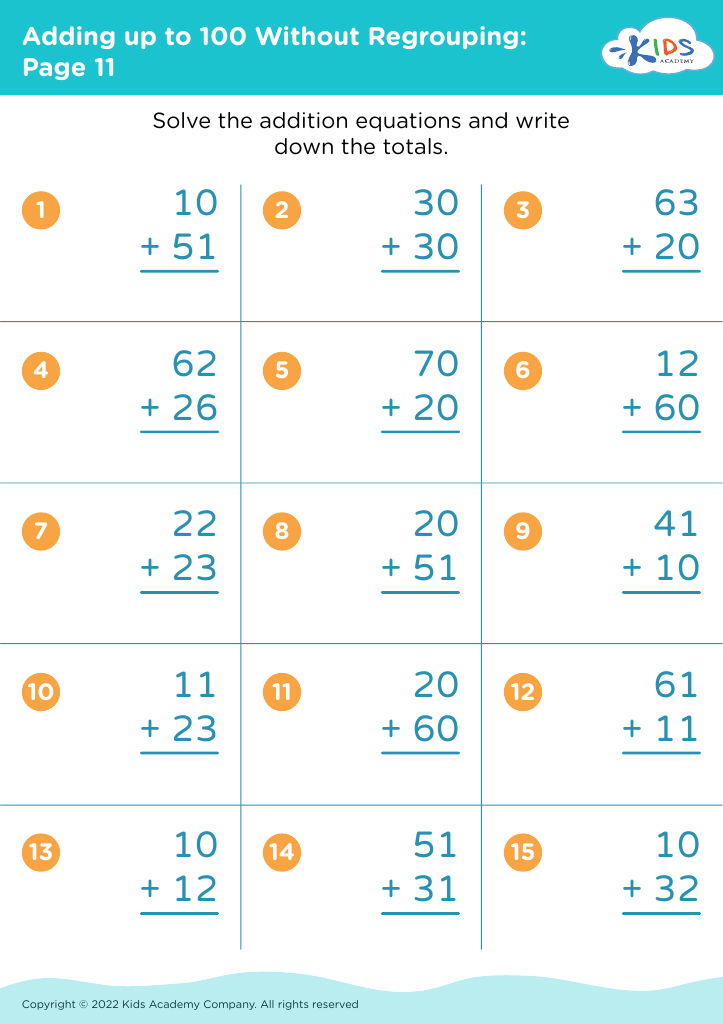Improving reading skills Addition Worksheets for Ages 5-7
4 filtered results
-
From - To
Boost your child's reading proficiency with our specially designed "Improving Reading Skills Addition Worksheets" for ages 5-7. Combining math and reading, these engaging worksheets from Kids Academy help young learners develop essential skills. Children will practice simple addition while enhancing their reading comprehension, critical thinking, and problem-solving abilities. Each worksheet features colorful, fun exercises that keep kids motivated and entertained. Aligned with early education standards, these resources support your child’s learning journey at home or in the classroom. Ignite a love for learning and watch your little learner thrive with our integrated approach to math and reading.
Parents and teachers should prioritize improving reading skills in children aged 5-7 because it lays a strong foundation for their future academic success and personal development. Early childhood is a critical period for brain development, and strengthening reading abilities during these years boosts cognitive skills such as attention, memory, and critical thinking. Proficiency in reading also enhances language skills, including vocabulary, grammar, and comprehension, making it easier for children to grasp other subjects.
Furthermore, reading fosters a love for learning, creativity, and imagination. When children discover the joy of reading, their motivation to explore and understand the world around them increases, fostering lifelong learning habits. Early reading skills are also linked to higher self-esteem and confidence, as children gain greater independence in their learning.
In social settings, proficient readers can communicate more effectively, understand and empathize with others, and develop better relationships. Delays in reading skills can lead to difficulties in other academic areas, resulting in frustration and a potential dislike for school. Therefore, focusing on reading skills at an early age can prevent future learning difficulties and support overall child development, setting them up for long-term success both academically and personally.





















